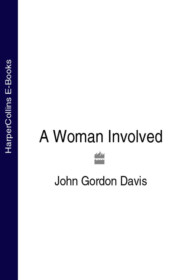По всем вопросам обращайтесь на: info@litportal.ru
(©) 2003-2024.
✖
Roots of Outrage
Автор
Год написания книги
2018
Настройки чтения
Размер шрифта
Высота строк
Поля
‘Yes.’
‘Good. So first I’ll read to you the official police press release, then you can take your nice photographs.’ He produced some sheets of paper and began to read in his heavy South African accent:
‘On the afternoon of Wednesday 23 July 1963, the South African Police, as the result of intensive undercover investigations, conducted a raid on Lilliesleaf Farm in the Rivonia area on the fringes of Johannesburg. A hundred and ten policemen were deployed. The first party of them arrived at the farmhouse inside two panel vans, one a bakery truck, the other a laundry van. The house was stormed. Inside we arrested nine leading members of the banned African National Congress gathered around a table studying a mass of documents which cursory examination proved to be plans for military-style insurrection and sabotage within South Africa. In different rooms were found two telex machines, two powerful two-way radios capable of reaching anywhere in the world, a photocopy machine, numerous cameras and film-development equipment, filing cabinets full of documents pertaining to the ANC and the Communist Party and other subversive matters, and a large quantity of arms, ammunition, land mines, grenades and explosives, all of Russian origin. The police believe that this raid has exposed the headquarters of the ANC and the Communist Party. Investigations continue and it is expected that a large number of other persons will now be traced who will be able to assist the police in their enquiries.’
He folded up the paper with a little smile. ‘Any questions, gentlemen, before you are taken over the house?’
Andy Murphy of the Star said: ‘Who is the owner of the farm?’
‘The registered owner is a certain white person whose name we cannot divulge at this time, but clearly somebody sympathetic to the ANC and SACP, who bought it on their behalf.’
‘What are the names of the people arrested?’
‘When their identities have been definitely established, a list will be released to the press.’ He looked at Mahoney. ‘How about a question from Drum? On behalf of all those black readers.’
Mahoney’s ears felt blocked. All he could think of was Patti, all he wanted to do was get the hell out of here, grab her and run like hell. His mind fumbled: ‘How big … a breakthrough against the ANC have you made today – do you think you’ve smashed them?’
‘Thank you for that question.’ He looked at the expectant pressmen. ‘Today is a triumph for the forces of law and order over the forces of darkness, hey! We believe we have smashed them, yes. Of course all the documents must be evaluated, but we believe we’re going to finish them off and mop up the rest with the information we’ve got today.’
Mop up the rest … Oh God, he had to get to a telephone.
The tour of the house seemed to take an eternity. A nightmare. They crowded through the rambling house, the photographers’ bulbs flashing, Colonel Krombrink like a showman, showing them the dining room where the men were arrested in flagrante delicto. They saw the office with its two-way radios, its filing cabinets, telexes, rooms with a dozen unmade beds, the kitchen with meals still in preparation, the fingerprint experts everywhere dusting for evidence, and outside on the back verandah the weapons neatly laid out in rows, the hand grenades, the landmines, the explosives, the ammunition, all neatly labelled for the public prosecutor. ‘That alone will hang ’em …’
Oh God, how much did Patti know about this? He just wanted to get the hell out of here.
But he was the last to leave. As the pressmen hurried back to their cars, Colonel Krombrink called: ‘Meneer Mahoney?’
Mahoney turned, his heart knocking. The colonel took his elbow and led him aside. He appeared to be thinking, then he said: ‘Are you feeling all right, Mr Mahoney? You’re very pale, hey, man.’
Mahoney’s pulse tripped. ‘I’m fine, thanks.’
‘Very pale, man,’ the good colonel said, ‘like you’re sick to your stomach. Or jus’ seen a ghost, hey, man. Anyway …’ He paced beside him pensively, down the verandah. ‘Mr Mahoney, you asked if we’ve smashed the ANC today, an’ yes we have, because we’ve chopped the head off the snake, hey? Quote that – the head off the snake. An’ now we’re going to get the rest of the snake out of its hole. Easy, man. Quote that too. Okay?’
Why was the man repeating this if it wasn’t a threat?
‘Okay.’
They came to some wicker armchairs. The colonel waved to one and sat down. Mahoney slowly sat down on the edge.
Krombrink said: ‘But, Got, man, it’s the eggs that snake laid that we’ve also got to find, before they hatch. An’ those eggs are buried, but not in the snake’s hole, hey? An’ sometimes they’re not so easy to find, hey?’
Mahoney knew what was coming, and he felt sick. ‘Yes.’
‘Yes, what?’
‘Yes, I can imagine …’
Colonel Krombrink snorted. ‘Imagine? Don’t you know?’
Mahoney felt his guts turn over. ‘Know what?’
‘Got, man, Mr Mahoney, newspapermen are supposed to use facts, hey? Tell the people the facts, not so?’
Oh God, the facts … ‘Yes.’
‘Jus’ like the judge wants. Facts, that’s what he wants to hear. An’ that’s what the police have to give him, not so?’
Mahoney’s nerves were stretched, as the colonel intended them to be. ‘Yes, that’s so.’
‘Yes …’ The colonel sat back pensively and looked at the ceiling; then, as if a sudden thought had struck him, he continued: ‘But, of course, newspapermen do use their imagination, hey, to get a good story. And so do policemen, to outsmart criminals, get information … So?’ He looked at Mahoney. ‘So you an’ I have a lot in common, really. We both work with facts, but we both have to use our imagination. An’ we both got to keep our ears open to get those facts. An’ another thing, hey – we both work a lot with kaffirs, don’ we? You write for them, and most of my customers are kaffirs, who’re trying to ruin the country.’
He knows, he knows, and he wants to use me …
‘Not so?’ the colonel said.
Mahoney nodded, sick in his guts. ‘I suppose so.’
‘And,’ the colonel said, as another thought struck him, ‘we’re both involved in the law, hey? Your father’s a lawyer an’ you’re working on a law degree, I believe?’ He spread his hands reasonably. ‘We both know what the law is – about accomplices, for example. About accessories before, during, or after the fact?’
Mahoney’s ears were ringing. ‘Sure.’
Colonel Krombrink nodded absently. Letting the silence hang. Then, as if heaving himself out of a reverie, he sat up: ‘So we’ve got a lot in common, Mr Mahoney. So – why don’t we cooperate, hey, man?’
Mahoney had known it was coming but it was like a blow to his guts. He heard himself say: ‘Cooperate how?’
The colonel said earnestly: ‘Of course, being an honest South African citizen, an’ an educated man, an’ a responsible newspaperman, you would always cooperate with the police? I mean –’ he waved a hand – ‘if you knew your neighbour had murdered his wife, you’d report it to the police, wouldn’t you? That’s your civic duty, hey man. Isn’t it?’
‘Of course.’
‘Yes. Any crime.’ The colonel waved his hand. ‘And so I feel confident that you’ll cooperate with us now.’
Oh Jesus, Jesus … ‘Over what?’ He tried to sound puzzled.
The colonel sat back. ‘Well,’ he said, man to man, ‘it’s about those bladdy eggs that bladdy snake’s laid, hey? The problem is, this snake doesn’t lay its eggs in one place, hey, like a nice ordinary viper or mamba. It lays them all over the show. An’ those eggs aren’t all the same colour, hey man. No, Got, they’re not all black, they’re also white and different shades of brown, man. Which makes looking for them quite a job, hey?’
Mahoney looked at him, his heart knocking. The colonel put his fingertips together. ‘Well, you work with kaffirs, Mr Mahoney, and you must hear a lot of talk, hey man. A lot of …’ he waved a hand, ‘stories. Information, about crime. Tip-offs. And –’ he stared with big reasonable eyes – ‘I’m sure that as a responsible citizen you will pass on such information to the police. Not so?’ He paused, then leant forward. ‘In fact, we’re relying on you to do that?’ He smiled.
Jesus, Mahoney feared and hated the bastard. He nodded. ‘Of course.’
The good colonel nodded. ‘Of course. Because anybody who didn’t do that might be described as an accomplice, hey man …’ He let that hang. ‘But you must also hear a lot of talk about this and that, which aren’t actual crimes, hey man? Rumours, even. Like who’s come back to town, maybe. Who knows who.’ He shrugged. ‘Who thinks what.’ He looked at Mahoney, then gave a wolfish smile. ‘And, of course, we want you to pass on all that too.’
Colonel Krombrink’s eyes had suddenly taken on a naked menace. And Mahoney wanted to shout, in anger and self-hate. Anger that this bastard was threatening him, bullying him into becoming an informer, self-hate that what he felt was gratitude, like he was meant to feel. Anger that he was being softened up by fear. Self-hate that he was so easily frightened – for Christ’s sake, if they knew he’d been using the cottage they’d have arrested him on sight! Self-hate that he felt prepared to agree to almost anything to save his skin.
‘Colonel Krombrink, you can rely on me to report any crime, as any responsible journalist would do. But no journalist is allowed to disclose the source of information …’
The colonel slapped his knees and stood up.
‘And, of course, as a journalist, you know all about the law, which enables the police to detain any person for ninety days now, until they’re satisfied he’s given all the information at his disposal? But, hell, man –’ he slapped Mahoney on the shoulder – ‘forget about depressing things like that on such a successful day! Mr Mahoney?’ The colonel took him warmly by the hand. ‘You’re busy, an’ so am I. So will you now excuse me, hey?’











